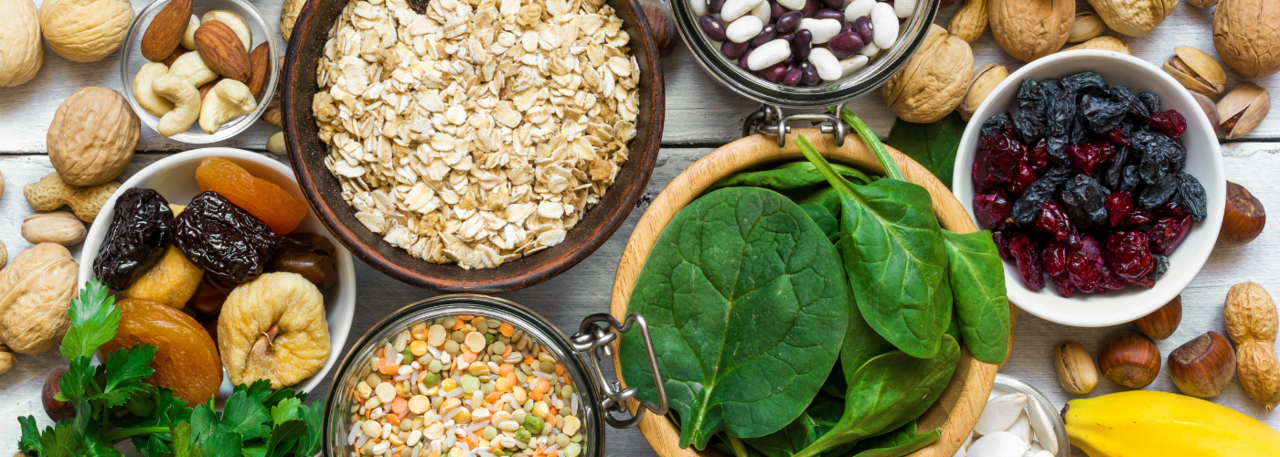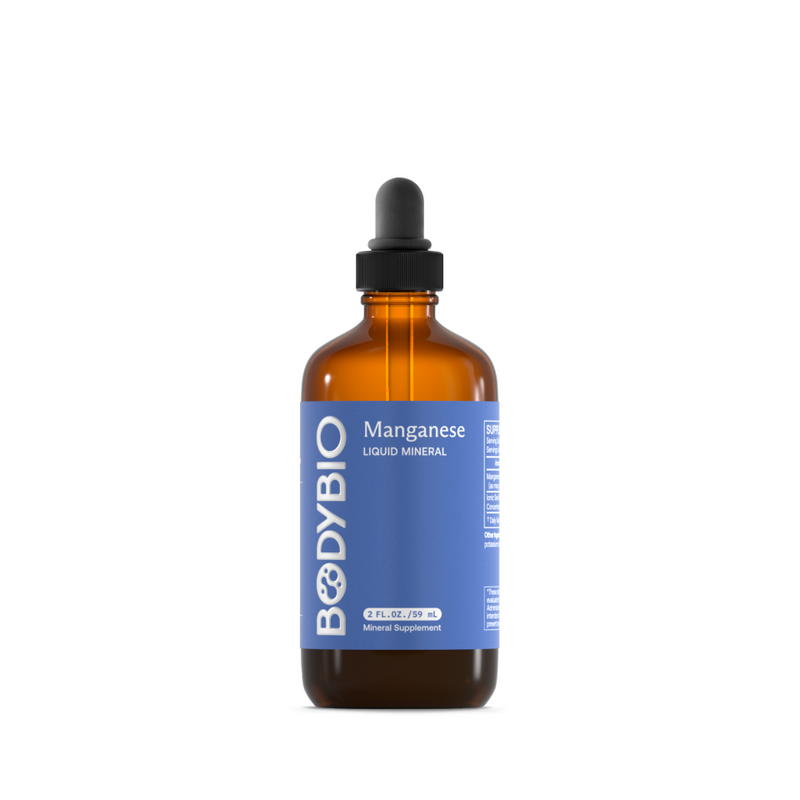Manganese vs. Magnesium: What’s the Difference and Why It Matters
Authors:

Ashley Palmer
Nutritional Therapy Practitioner, Health & Wellness Expert
Key Takeaways:
Manganese and magnesium—two minerals that are similar in name, but not in function. Both are indispensable to human health, yet their roles in the body are quite different. Understanding these differences isn’t just trivia—choosing manganese or magnesium can have meaningful implications for your bone strength, energy levels, stress resilience, and more. In this post, we break down their key distinctions, health benefits, dietary sources, and when supplementation might be needed.
Table of Contents:
-
What Are Manganese and Magnesium?
-
Key Differences Between Manganese and Magnesium
-
Health Benefits of Manganese
-
Health Benefits of Magnesium
-
Best Food Sources of Manganese and Magnesium
-
Do You Need Both Minerals?
-
Choosing the Right Mineral for Your Health
What Are Manganese and Magnesium?
Manganese is a trace mineral, meaning your body needs it in very small amounts—typically less than 2 mg per day for adults. It acts primarily as a cofactor for enzymatic processes, including those involved in amino acid, cholesterol, and carbohydrate metabolism.
Magnesium, on the other hand, is a macromineral—you need it in hundreds (even thousands!) of milligrams daily. It is involved in more than 300 enzymatic reactions, ranging from ATP production to electrolyte transport and DNA synthesis. It’s also crucial for muscle relaxation, nervous system regulation, and cellular hydration.
Key Differences Between Manganese and Magnesium
Energy Production vs. Muscle Function
Manganese is key for activating enzymes such as manganese superoxide dismutase (MnSOD), which protects against oxidative damage in mitochondria. If you want your cells to make energy for you, this is super important. Magnesium is essential for neuromuscular signaling, muscle contraction, and maintaining a steady heartbeat. Though it is typically more associated with a relaxation effect, certain types of magnesium can also give you a boost in energy, such as magnesium malate and magnesium L-threonate.
Support for Bone Health and Energy Production
Both minerals support bone formation, but in different ways. Manganese is necessary for forming connective tissue and cartilage. Magnesium contributes to bone density by regulating calcium homeostasis and participating in vitamin D metabolism.
Impact on Brain and Nervous System Function
Manganese aids in dopamine and glutamate (neurotransmitters) synthesis , making it relevant to cognitive and emotional health. While dopamine and glutamate are associated with different brain functions and emotions, we can think of them as more stimulating—involved with learning, memory, and motivation. Manganese can also support healthy histamine levels, which may impact mental clarity. Magnesium enhances GABA (another key neurotransmitter) activity and receptors, which is more calming and can help regulate mood and sleep cycles.
Why BodyBio Includes Manganese in Calm: If manganese supports dopamine and glutamate instead of more calming neurotransmitters like GABA, why do we include it in BodyBio Calm? Because manganese also has the ability to regulate histamine, high levels of which can cause debilitating anxiety for many people. Helping the body lower histamine levels creates a greater overall calming effect on a systemic level.
Health Benefits of Manganese
Antioxidant Properties and Enzyme Activation
The body uses manganese to make MnSOD, a key enzyme that neutralizes free radicals in mitochondria, reducing oxidative stress at a cellular level. This is important to make sure mitochondria can produce energy efficiently.
Importance for Bone and Joint Health
Studies indicate that manganese supports the formation of healthy collagen and cartilage, potentially reducing symptoms of joint degeneration in aging populations.
Health Benefits of Magnesium
Muscle Relaxation and Electrolyte Balance
Magnesium acts as a natural calcium channel blocker, helping to relax muscles, reduce cramps, and stabilize electrolyte balance in the body.
Role in Stress Management and Sleep Quality
Clinical trials show that magnesium supplementation improves insomnia, anxiety, and stress-related tension—primarily by its effects on GABA and melatonin synthesis. Helping your muscles relax doesn’t hurt either!
Best Food Sources of Manganese and Magnesium
Want more manganese or magnesium in your diet? Stock up on these foods.
Manganese-Rich Foods:
- Whole grains (brown rice, quinoa)
- Leafy greens (kale, spinach, chard)
- Nuts (pecans, walnuts)
- Shellfish (mussels)
Magnesium-Rich Foods:
- Pumpkin seeds
- Almonds
- Dark leafy greens
- Avocados
- Black beans
Whole, unprocessed plant foods typically provide both minerals in varying amounts.
Do You Need Both Minerals?
Yes—just in different quantities. They aren’t interchangeable. Each plays unique biochemical roles and deficiencies, though it’s rare for manganese, can lead to distinct symptoms.
Signs of Deficiency and When to Supplement
- Manganese deficiency may lead to poor bone formation, fertility issues, and skin problems. Manganese deficiency may be harder to spot since these issues are less specific and can have multiple root causes.
- Magnesium deficiency is more common (since you need much more of it and use it up faster) and is linked to muscle cramps, fatigue, heart arrhythmia, and even anxiety.
Supplements can be beneficial when diet, stress, or medical conditions impair absorption.
Choosing the Right Mineral for Your Health
In general, minerals work better together. But sometimes, individual supplementation is necessary to correct a deficiency.
If you’re looking for a high-quality, easy to take manganese supplement, look no further than BodyBio Liquid Manganese.
For more magnesium in your daily routine, BodyBio e-lyte provides magnesium, sodium, and potassium in the ideal ratio. However, you may need an additional magnesium supplement, such as magnesium glycinate (ideal for stress relief) or L-threonate (better uptake in the brain).
Check out our types of magnesium guide to see which type of magnesium may most benefit you.

